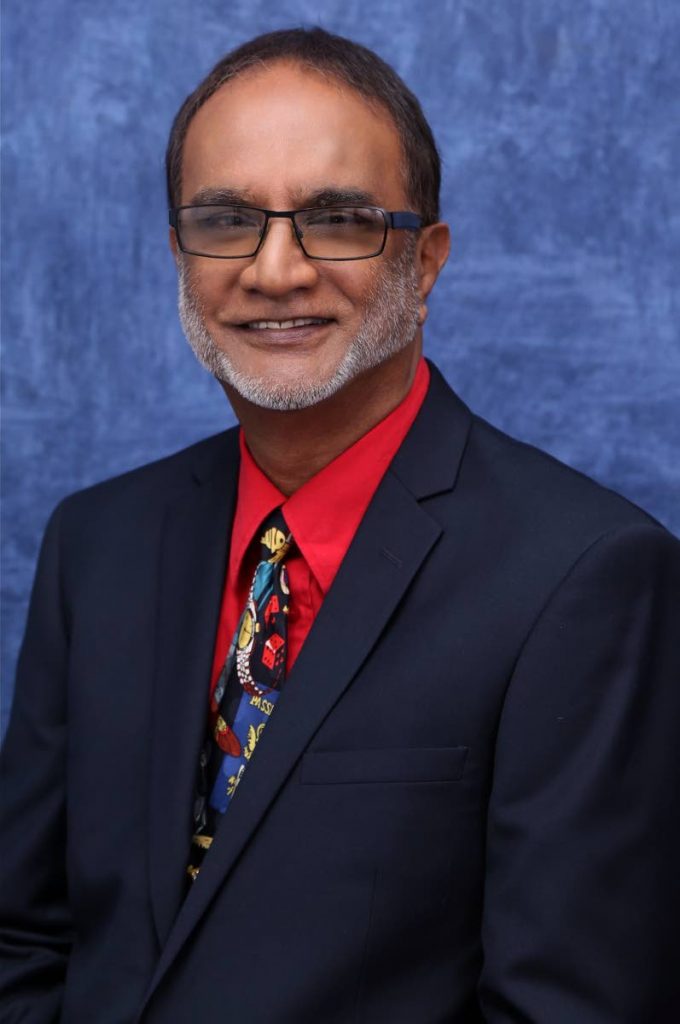Sahid Hosein: NP in profitable position

NATIONAL Petroleum Marketing Company Ltd (NP) chairman Sahid Hosein says the company is in a profitable position.
He was answering questions from Public Accountants Enterprises Committee (PAEC) chairman Wade Mark about NP’s financial affairs at a meeting between the PAEC and officials of NP, the Energy and Finance Ministries at the Red House, Port of Spain on Wednesday.
The meeting was held to discuss NP’s financial statements for fiscal 2018 and 2019.
Referring to a document in his hand, Mark asked Hosein and other NP officials some questions. “Is NP a ward of the state? Is NP bankrupt and possibly bordering on the verge of insolvency?” Mark said NP reported a loss of $28 million at the end of 2017.
This was followed by losses of $7 million and $46 million in 2018 and 2019, respectively. Mark said all of this happened before the COVID-19 pandemic in 2020.
“Could someone give me a current reality to give this committee some comfort that we are sailing safely into harbour and we don’t have to toss anything overboard in order for us to save the ship from capsizing?”
He asked NP officials to indicate whether the company recorded a profit or a loss at the end of last year.
Hosein said, “NP operates on very slim margins, which are dictated by the Government through the Ministry of Energy.”
He added that since 2016, the company has not received any funding from the Public Sector Investment Programme (PSIP) to undertake any significant capital expenditure. But despite those challenges, Hosein said, NP is in a good financial position. “We are in a profitable position since 2022.”
NP finance manager Joy John-Benjamin supported Hosein’s position. Thanks to increases in its operating margins in 2020, she said, NP reported a profit of $19.5 million. John-Benjamin said subsequent increases in these margins over time have placed the company on a trajectory towards profitability.
Mark asked about the timeliness of NP signing contracts with its clients. He identified a contract for aviation fuel between NP and Rubis Caribbean (January 1, 2019-December 2021) and Caribbean Airlines (January 2018-December 2018) as examples.
The latter, Mark continued, was signed on January 29, 2019. He said the PAEC had no information on the monetary values of these contracts.
“Why would I give out aviation fuel? Because I have to survive. I am NP. I have to make a profit to survive as a going concern.”
Mark said information provided by NP to the PAEC suggested aviation fuel had been provided to company clients from January 18-December 31, 2018.
But he added, “It was not until almost a year and couple of months later that it (the contract) was signed.”
Mark said a contract between NP and Rubis was not signed until sometime after its commencement.
“Why is this thing happening? Secondly what is the value of these contracts?” He asked for copies of these contracts be provided to the PAEC.
Energy Ministry permanent secretary Pennelope Bradshaw-Niles said those contracts would have been signed by NP and not the ministry.
Hosein said NP buys aviation fuel from Rubis and then supplies CAL with that fuel. Responding to Mark’s concerns about the timeliness of contracts being signed, Hosein said, “When these matters come to our attention, we take steps to close those gaps as necessary.”
Mark asked if these types of contracts involve over $1 million in expenditure. Hosein replied, “Yes.” Mark asked if board approval is necessary to execute them.
Hosein said it was. Mark said the signing of contracts after they have commenced could be a source of embarrassment for the board of any company.
NP general manager (aviation and marine fuel) Chester Beeput attributed the late signing of some contracts between NP and its clients to “back-and-forth” discussions of details of the contracts.
With respect to airlines, Beeput said they are invoiced weekly and required to pay within 15 days.
“So notwithstanding a contract not being signed off at a point in time, there might have been a previous contract in place and they are invoiced for that. There is no issue with cash flow, because you are required to pay within 15 days, and that is monitored by the aviation and marine department of all airlines.”
Mark asked if CAL owed NP any money for the purchase of aviation fuel. Beeput replied, “Currently CAL does owe us. We follow-up with them. They would basically pay us.”
He estimated the amount CAL owes NP for aviation fuel at approximately $15 million. Beeput added, “They would normally pay us between $5 and $10 million per week. “Eventually, they will become current.”
Finance Ministry Investment Division acting director (agro-manufacturing/services sector) director Sharon Mohammed said NP is usually timely in submitting its financial statements to the ministry, but added that the company’s 2021, 2022 and 2023 statements remain outstanding.
Mark was concerned about a delay in the submission of some of NP’s earlier statements and the PAEC not being in receipt of documents confirming the submission of those statements.
Hosein attributed this situation to some auditors telling NP they had to wait their turn until they deal with the statements of other client companies.
Mark said this was unacceptable. He added that NP would be paying these auditors for their services.
“They are not there for free. If they can’t deal with you, fire them and get someone else.”
He reminded the NP, Energy Ministry and Finance Ministry officials that the role of the PAEC was not a punitive one. “We want to help.”


Comments
"Sahid Hosein: NP in profitable position"